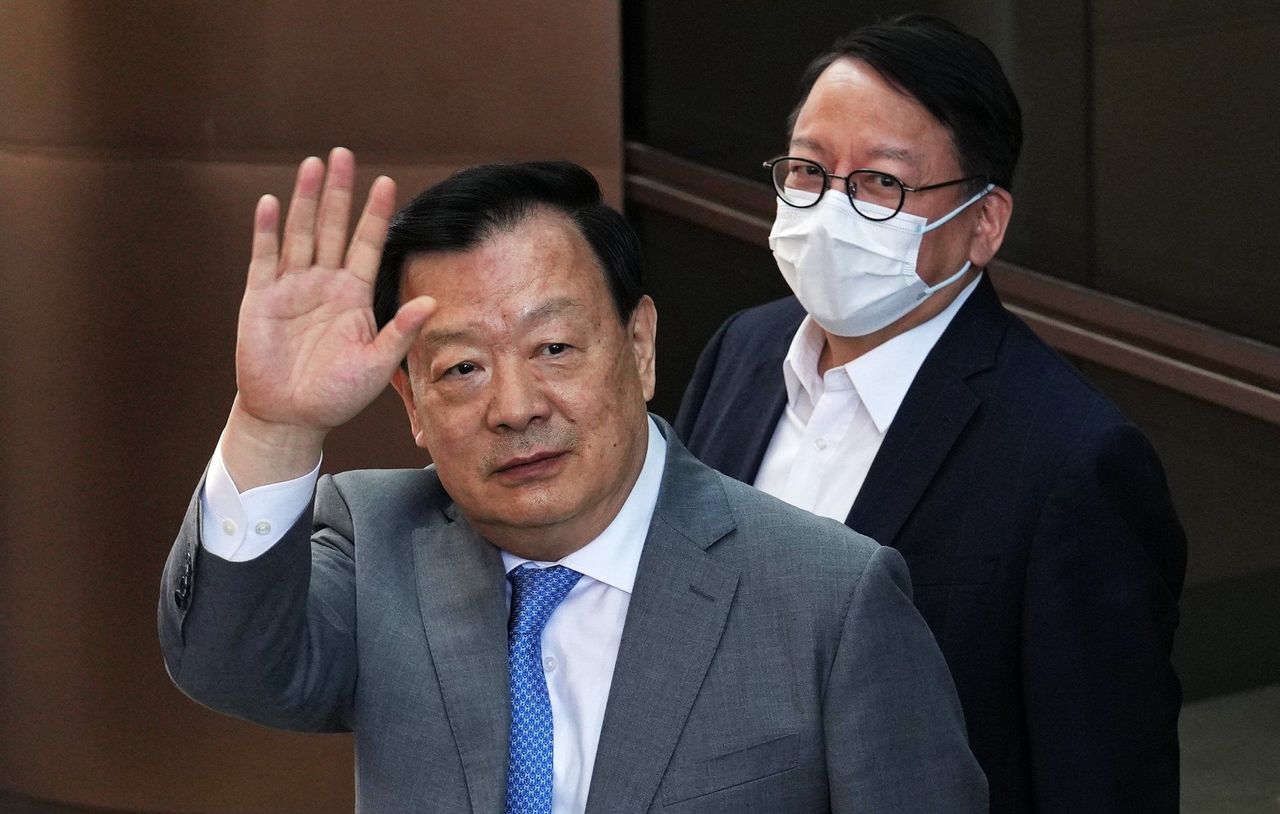Hong Kong News

Hong Kong needs new ideas to successfully develop innovation and tech
Director of the Hong Kong and Macau Affairs Office Xia Baolong’s unprecedented six-day visit to the city might have been at short notice, but it has been well planned.
Before touching down last Thursday, Xia made it clear that “investigations and studies” on both Hong Kong and Macau “should be greatly enhanced”. The purpose of the visit is clear: “examine problems in an in-depth research manner. Focus on rectification and implementation. Strengthen organisational leadership and consolidate leadership.”
This fact-finding and problem-solving trip is probably the first of more to come. Conducting this surprise inspection personally, it is evident that Xia is here to get to the bottom of some of the city’s most pressing long-standing problems.
As Xia arrived in our city, Chief Executive John Lee Ka-chiu reiterated a message that has been pounded in our minds for the past few months. Hong Kong is entering the next phase of economic development, pursuing high-quality growth by developing innovation and technology.
Last month, former chief executive Leung Chun-ying – a vice-chairman of the country’s top political advisory body – urged the innovation and technology sector to play their part in “aligning Hong Kong with the national digital economy strategy to explore a new development direction for the financial hub”.
It makes perfect sense that innovation and technology is on Xia’s list. Even more important is that we need to fit into the national plan.
 Director of the Hong Kong and Macau Affairs Office Xia Baolong waves as
he arrives in Hong Kong, accompanied by Chief Secretary Eric Chan
Kwok-ki, on April 13.
Director of the Hong Kong and Macau Affairs Office Xia Baolong waves as
he arrives in Hong Kong, accompanied by Chief Secretary Eric Chan
Kwok-ki, on April 13.
The fact is that we’ve been talking about diversifying our economy since the days of Tung Chee-hwa, our first chief executive. All the recent talk of tech, innovation and the release of the Hong Kong Innovation and Technology Development Blueprint last December are nothing new.
A lot of public money and resources have gone into promoting innovation and technology over the past two decades, and it hasn’t been smooth sailing at all. The controversial Cyberport project was awarded, without an open tender, to the Pacific Century Group and became a huge luxury residential project. It took decades for Cyberport to slowly shed some of its negative image as an iconic white elephant and the epitome of government-business collusion.
The Hong Kong Productivity Council, also for a long time a part of the government’s IT push, had been accused of not being productive enough by the Audit Commission. We also have the Hong Kong Science and Technology Parks Corporation (HKSTP), which has received a large amount of expensive real estate. It operates and manages the Science Park, InnoCentre, industrial estates and the Hong Kong-Shenzhen Innovation and Technology Park.
It has courted controversy, including concerns over an exodus of staff, vacant space, a failure to attract talent, and being held accountable on its criteria for handing out funds.
 Financial Secretary Paul Chan Mo-po (right) tours InnoCarnival 2022 at the Hong Kong Science Park on October 22, 2022.
Financial Secretary Paul Chan Mo-po (right) tours InnoCarnival 2022 at the Hong Kong Science Park on October 22, 2022.
Also consider HKSTP’s legal problems. It was embroiled in controversy as a landlord after one of its tenants, Apple Daily, violated the terms of its lease, which specified the use of the premises was limited to printing and publishing newspapers or magazines.
A local data centre, Sunevision, meanwhile, won a judicial review against the corporation after the latter again failed to enforce its lease restrictions. Essentially, the HKSTP awarded data-centre providers space, at a steeply discounted price, that was then sublet for profit.
According to the Innovation and Technology Development Blueprint, the government is planning to carve out more land for data centres. But granting subsidised land to multinational data-centre operators, which may then sublet space for profit at the public’s expense, doesn’t sound much like aligning with the national plan.
Before he became a member of the current Legislative Council, Professor William Wong Kam-fai had called on the government to set up committees to monitor the work of the HKSTP in response to the 2018-19 budget. Oversight is crucial in making sure public bodies do what the government has tasked them to do.
The government’s old formula of throwing land and money at public bodies without adequate oversight and accountability isn’t very innovative. And it is the disruption and transformation brought on by technology that demands change. Lee himself has spoken about how the digital economy has reformed traditional business models.
But behemoths such as the HKSTP can be the most resistant to change. Xia’s trip to “examine problems” and “focus on rectification and implementation” means change is imminent. That’s something the Innovation, Technology and Industry Bureau must acknowledge. Pouring new wine into old wineskins won’t do.











